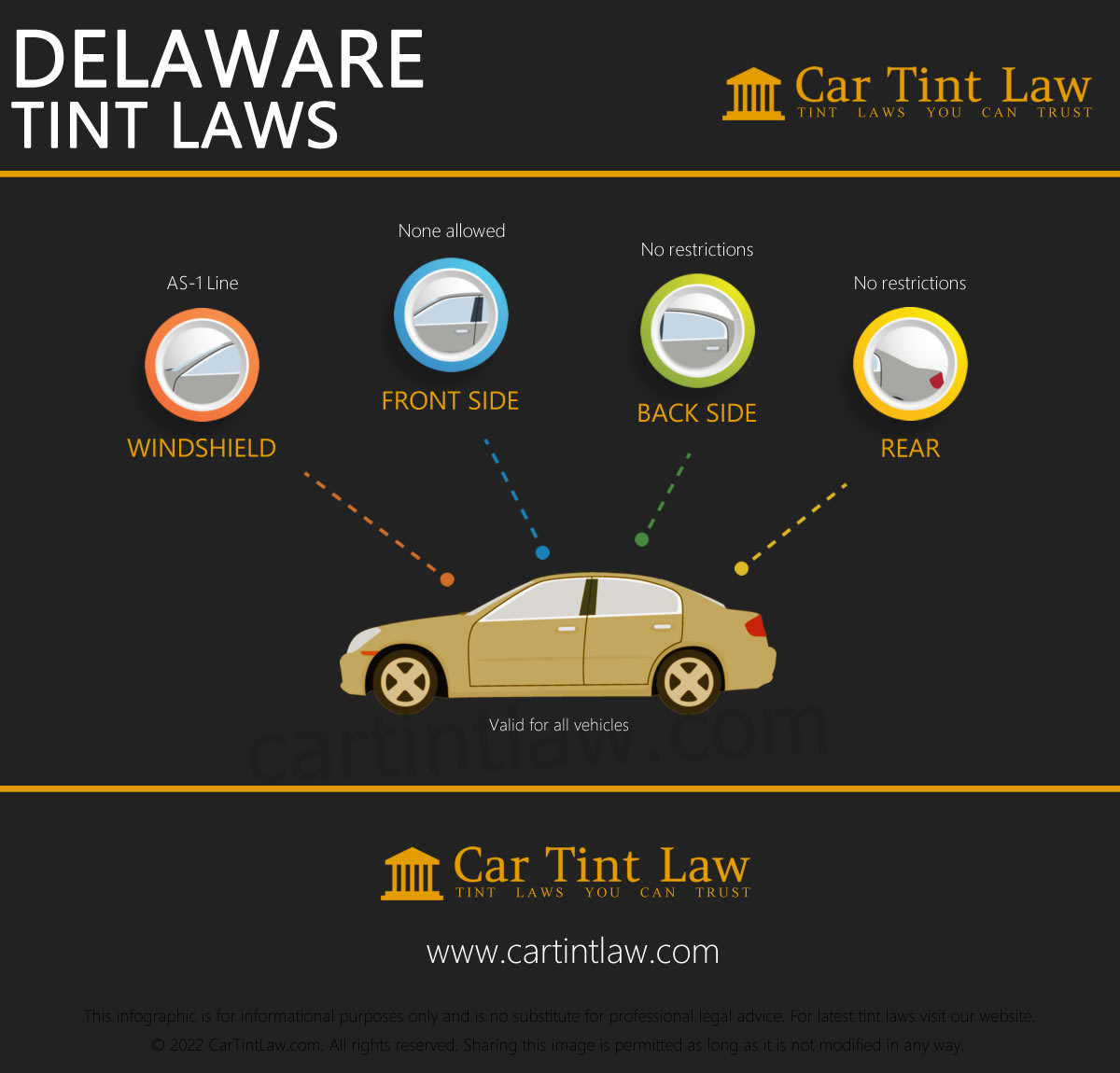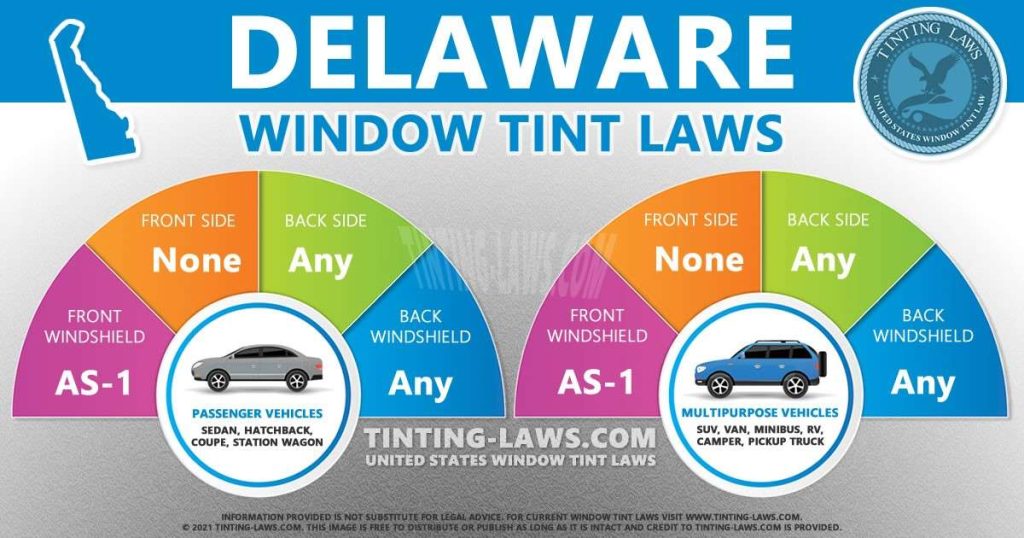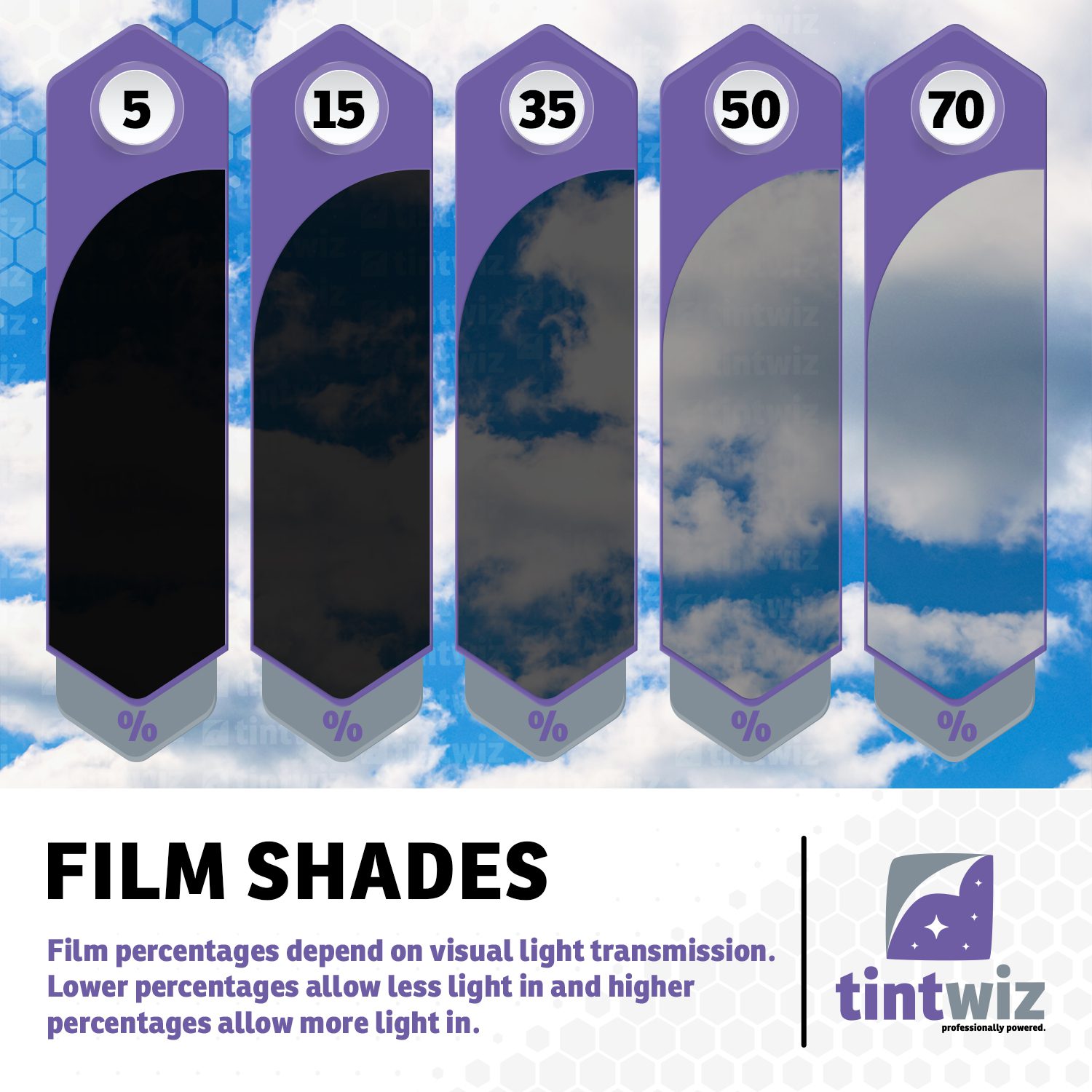Are you considering tinting your car windows in Delaware? Before you make any decisions, it’s crucial to understand the state’s tint law to avoid potential fines and inconveniences.
Delaware’s tint regulations might seem complex at first, but don’t worry. We’re here to simplify them for you. Imagine cruising down the highway with just the right amount of shade, ensuring your comfort and privacy without breaking the law. This article will guide you through everything you need to know about Delaware’s tint law, helping you make informed choices.
Stay with us, and let’s explore how you can achieve the perfect tint while staying compliant.

Credit: www.cartintlaw.com
Tint Law Basics
Understanding the basics of Delaware Tint Law is crucial for car owners. Knowing what is allowed can prevent fines and help maintain your vehicle legally. This section covers the essentials of tint law, including window tinting, the purpose of tint laws, and legal tint limits.
What Is Window Tinting?
Window tinting involves applying a thin film on car windows. This film can vary in color and thickness. It helps in reducing glare and blocking harmful UV rays. Tinting also offers privacy and enhances the car’s appearance.
Purpose Of Tint Laws
Tint laws exist to ensure road safety. They prevent excessively dark tints that can obstruct vision. Proper visibility is crucial for safe driving. Tint laws also help law enforcement see inside vehicles. This is important for safety checks and crime prevention.
Legal Tint Limits
Delaware has specific rules on how dark window tints can be. Front side windows should allow more than 70% of light. Rear windows can have darker tints. These rules vary for different vehicles. It’s important to check the specific regulations for your car type.
Specific Regulations In Delaware
Understanding the tint laws in Delaware is crucial for vehicle owners. These regulations ensure safety and visibility on the road. Complying with the law helps avoid fines and penalties. Let’s explore the specific regulations for window tinting in Delaware.
Front Window Tint Restrictions
Delaware has strict rules for front window tinting. The front windshield must allow over 70% light in. This ensures clear visibility for drivers. It helps in avoiding accidents and ensures road safety.
Rear Window Tint Guidelines
Rear windows have more lenient tinting rules. Delaware allows darker tints on rear windows. This provides privacy for passengers and enhances security. But, the tint must not obstruct visibility for the driver.
Side Window Tint Rules
Side windows must follow specific tinting regulations. The front side windows should allow more than 70% light in. The rear side windows can have darker tints. This balance ensures driver visibility and passenger privacy.
Exceptions And Special Cases
Delaware’s tint law permits certain exceptions and special cases. Medical exemptions allow darker window tints for health reasons. Vehicles used by law enforcement or security may also have different tint requirements.
Understanding Delaware’s tint law can be a bit tricky, especially when you consider the exceptions and special cases. These special scenarios allow for deviations from the standard regulations, providing some flexibility. Whether you have a medical condition, drive a commercial vehicle, or need a temporary permit, there are specifics you should be aware of. ###Medical Exemptions
Some individuals require darker window tints due to medical conditions. These exemptions are crucial for those who need to protect their eyes from sunlight or who have skin conditions aggravated by UV rays. If you have a qualifying condition, you must obtain a medical exemption certificate. This certificate must be issued by a licensed physician. It is also important to carry this document in your vehicle at all times to avoid potential fines. Have you ever considered how a simple doctor’s note can dramatically change your driving experience? ###Commercial Vehicle Rules
Commercial vehicles often operate under different regulations when it comes to window tinting. These vehicles may require specific tint levels to ensure safety and compliance with business needs. For instance, delivery trucks might need clearer windows for better visibility. However, there are still rules to follow. Just because a vehicle is commercial doesn’t mean it can have any tint level. Compliance is key, and ensuring you follow the rules can save your business from penalties. How do you ensure your commercial vehicle meets the necessary standards? ###Temporary Permits
There might be situations where you need a temporary permit for window tinting. This could be relevant if you’re waiting for a medical exemption to be processed or if you’re in the process of transferring vehicle ownership. Temporary permits can provide peace of mind during these transitions. The process of obtaining these permits is straightforward but requires adherence to specific guidelines. Make sure you understand the duration and limitations of these permits to avoid any legal issues. Have you ever had a situation where a temporary permit was a lifesaver? Understanding these exceptions and special cases can make navigating Delaware’s tint law a lot less daunting. Whether you have a medical need, operate a commercial vehicle, or require a temporary permit, knowing your options can make all the difference.
Credit: www.tinting-laws.com
Penalties For Non-compliance
Delaware’s tint law imposes fines for non-compliance, ranging from $28. 75 to $100. Violators risk additional penalties, including vehicle inspection failures and potential license suspensions. Adhering to legal tint percentages ensures safety and avoids these costly consequences.
When you’re driving through Delaware, the tint on your car windows might seem like a small detail. However, ignoring Delaware’s tint laws can lead to penalties that could impact your wallet and your vehicle’s standing. Understanding these penalties is crucial for every driver who wants to avoid unnecessary hassle and maintain smooth sailing on the road.Fines And Fees
If your vehicle’s window tint doesn’t comply with Delaware’s regulations, you could face fines. These fines can vary depending on the severity of the violation. Even a minor discrepancy could cost you around $28.75, while more significant violations might lead to higher penalties. It’s essential to remember that these fines can add up. Repeated offenses can lead to increased costs, turning a small oversight into a significant financial burden. Wouldn’t you rather spend your money on something more enjoyable than paying off fines?Impact On Vehicle Registration
Non-compliance with tint laws can also affect your vehicle registration. Authorities may refuse to renew your registration until you rectify the tint issue. This could mean you’re stuck without a legally drivable vehicle. Imagine the inconvenience of being unable to renew your registration. The time and effort it takes to fix this issue can be frustrating. It’s always better to ensure your vehicle meets all legal requirements to avoid any roadblocks.Corrective Measures
Thankfully, there are steps you can take to avoid penalties. Start by checking your tint’s darkness and reflectiveness to ensure it aligns with Delaware’s standards. If you’re unsure, many auto shops offer tint measurement services. If you discover your tint is too dark, consider having it adjusted. Removing or replacing the tint can be a straightforward process with the right assistance. It’s a practical way to avoid fines and keep your vehicle in good standing. Why risk penalties when you can take proactive measures to ensure compliance? By understanding and adhering to Delaware’s tint laws, you maintain your vehicle’s legality and enjoy peace of mind on every journey.Tips For Legal Tinting
Understanding Delaware tint law ensures your car’s windows stay legal. Tinting enhances privacy and comfort. Yet, improper tinting may lead to fines. It’s crucial to choose the right tint, install it properly, and maintain its quality. Here are some tips to guide you.
Choosing The Right Tint
Select a tint that complies with Delaware law. Front side windows must allow over 70% light in. This means the tint should not be too dark. Rear windows can be darker. Check the Visible Light Transmission (VLT) percentage. A higher VLT means a lighter tint. Ask a professional for advice. They can help you choose a legal and effective tint.
Installation Best Practices
Hire a reputable installer for your window tint. Professionals know how to apply tint without bubbles or creases. Ensure they use high-quality materials. This prevents peeling and fading over time. Check if the installer follows state regulations. This ensures your tint remains legal and durable.
Maintaining Tint Quality
Proper care extends the life of your window tint. Clean tinted windows with a soft cloth. Avoid harsh chemicals and abrasive tools. These can scratch or damage the tint. Park your car in shaded areas. This reduces sun exposure and fading. Regular maintenance keeps your tint looking new and legal.

Credit: tintwiz.com
Frequently Asked Questions
Is 20% Tint Legal In Delaware?
No, 20% tint is not legal for front side windows in Delaware. Delaware law requires at least 70% light transmission for front side windows. Rear and back windows can have any tint darkness. Always check local laws for updates and specific regulations.
Is 35% Tint Legal In All States?
35% tint legality varies by state. Check local laws for specific regulations on window tint percentages. Compliance ensures safety and avoids fines. Always consult state-specific guidelines before applying tint.
Can You Get Pulled Over For Tints In Delaware?
Yes, you can be pulled over for illegal window tints in Delaware. Delaware law specifies tint darkness and reflectivity limits. Front windows must allow over 70% light. Non-compliance may result in fines or citations. Always check local regulations to ensure your vehicle’s tints meet legal standards.
Do You Need A Tint Waiver In Delaware?
Yes, a tint waiver is required in Delaware for medical exemptions. Obtain it from the Division of Motor Vehicles. Follow state guidelines to ensure compliance with legal tint limits. Always carry the waiver in the vehicle for verification by authorities.
Conclusion
Understanding Delaware tint law keeps your vehicle compliant. Protects you from fines. Knowing the legal limits helps you choose the right tint. It ensures safety while driving. Tint affects visibility, crucial during night drives. Staying informed saves you from unexpected penalties.
Read local guidelines before applying tint. Legal advice can clarify any doubts. Safety and legality go hand in hand. Follow the law for peace of mind. Keep your car stylish and safe. Respect the rules to avoid trouble. Stay updated on any law changes.
Safe driving starts with compliance.
